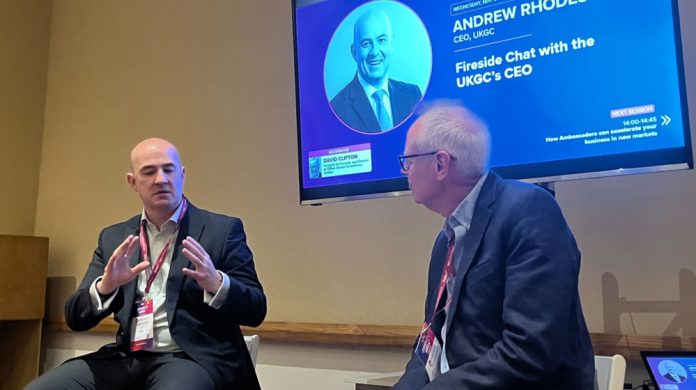The UK Gambling Commission (UKGC) has significantly strengthened its strategy when it comes to tackling the unlicensed market and ensuring the most vulnerable are protected in the regulated sector.
In laying out its new strategy, the UKGC underlined the major impact that the unlicensed market has on society.
Chief Executive Andrew Rhodes, who is spearheading the proposals, detailed his awareness of concerns around new regulations being introduced risking the displacement of some consumers and leading to the growth of the black market.. Rhodes asserted that the growth of any black market operator would be an unintended event that the sector must avoid.
Pinpointing some of the key methods the body has taken when it comes to mitigating black market operators, it highlighted the positive impact of ‘URLs being removed from search results, choking off payments and stopping games and products being accessible on illegal sites’.
One of the most threatened demographics when it comes to being targeted by unlicensed operators is those who have engaged with self-exclusion schemes, the UKGC warned. Accordingly, the UKGC strives to elevate the resources it uses to eradicate unlicensed operators.
Data analytics is one of the other key tools the UKGC is tapping into in order to ensure that the black market is mitigated. Utilising data enables the UKGC to effectively target the most impactful areas when it comes to unlicensed operators.
The regulator described data analytics as being ‘at the heart of our corporate strategy’, as it publishes its new methodology paper and looks to elevate the strategy in tackling the black market.
Furthermore, the regulator also outlined that it is increasing its focus on affiliates that promote unlicensed operators, through honing in on key search words.
Additional steps include increasing engagement with law enforcement agencies, such as the Police Intellectual Property Crime Unit, and strengthening ties with payment providers to disrupt illegal transactions.
Rhodes reiterated the importance of collaboration and data-driven action. “We are committed to making it difficult to provide illegal gambling at scale to consumers in Great Britain,” he said. “The partnerships we’ve built with international regulators, technology partners, and search engines are already delivering results, and we’re determined to keep up this momentum.”
“By using data analytics to improve our enforcement efforts, we’re not just reacting to the problem, but proactively targeting illegal operators. The publication of our methodology paper is just the first step in sharing this work with stakeholders and the public. As we continue to refine our approach, we will use this data to provide deeper insights into the scale and dynamics of the illegal market.
The data also revealed that ‘some unlicensed sites do not allow people to access them from IP addresses based in Great Britain. Consumers can bypass this by using a Virtual Private Network (VPN) to mask the location they are accessing the site from. The model does not capture any traffic to unlicensed sites from GB consumers using a VPN.’
The first iteration of the model uses GGY data for online slots as it underlines that a significant proportion of unlicensed gambling activity is slots.
The UKGC also emphasised that this is just the start of the work it is doing as it looks ahead to the methodology being published in Spring 2025.
It will identify the impact of gambling slots streaming sites, such as Twitch and Kick, and crypto trading platforms are also locations where gambling sites without GB licences may be promoted, will be analysed. As well as encrypted messaging platforms such as Telegram and WhatsApp.











